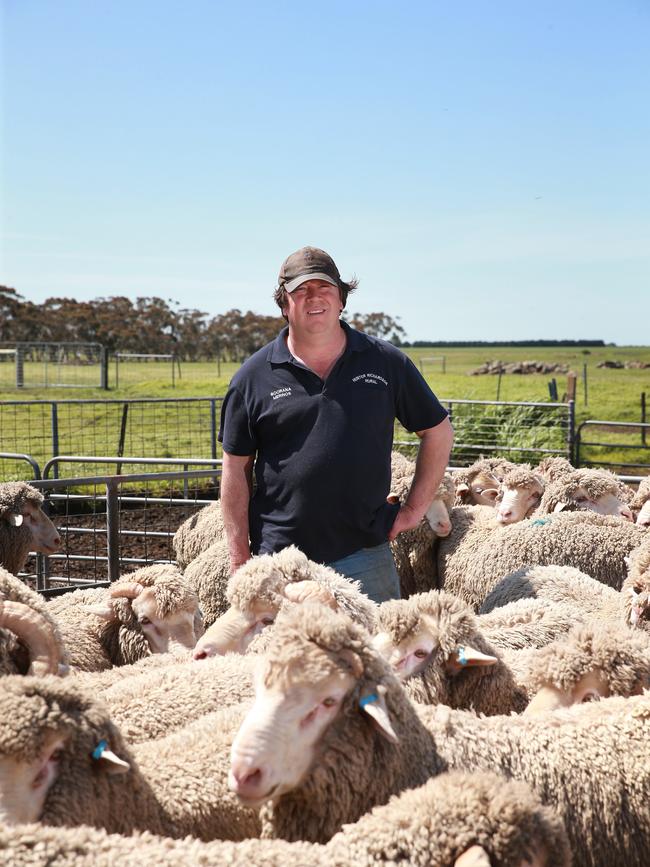Boorana Merinos: Top rams for best dual-purpose sheep
By spending big on genetics to breed for three crucial traits, Boorana Merinos and its clients can plan for profits.
Will Lynch has his eye on the prize when it comes to acquiring the best genetics for his Boorana Merino Stud at Glenthompson and he isn’t afraid to pay top dollar to achieve it.
In the past three years he has secured four top priced rams at southern sales, paying up to $50,000 at the Classings Classic and between $40,000 and $100,000 at the Adelaide Ram Sale.

Three out of four of those high-end rams were from Glenlea Park.
“We are pretty much a Glenlea Park daughter stud. We’ve been on those genetics since 2010,” Will said.
“They cover both dual-purpose bases in regards to meat traits and wool quality. Basically we are just trying to buy the top end genetics available.”
Will runs 11,000 breeding ewes in his stud and commercial flock on 2600ha in Western Victoria.
He aims to breed a dual-purpose, non-mulesed Merino with high quality wool and meat traits.
“We’ve been unmulesed for 13 years,” Will said.
“That is one thing people are looking for and that was especially noticed at the Southern Merino Field Days last year. It is a hot topic. People are looking at where they go in regards to that and also signing up to RWS (Responsible Wool Standards) and those best practice programs.”
Boorana is accredited with New Zealand Merinos, which includes RWS and ZQRX, a New Zealand auditing program for fibre quality, animal welfare and environmental and social standards.
Will said while there were a few extra costs involved in the programs, it was worthwhile.
“To get three-year wool contracts, it helps your business out – you can plan for the future,” he said.
Similarly, Will believes spending on genetics is a long-term investment and his confidence in the wool industry remains high despite the recent drop in prices.
“I don’t look at the short-term fluctuations. Yes it has fallen since May when it was incredibly hot but unfortunately that’s the wool market,” he said.
“That’s why we have to look at contracts to protect ourselves against the risk.”
Will said well-bred Merinos were achieving high lambing percentages, and had good growth and meat characteristics providing clients with surplus stock to sell as well as market options to help risk mitigation.




